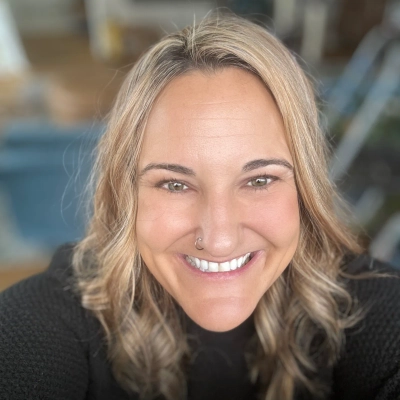11 Life Insurance Tips for Young Adults
Life insurance is often overlooked by young adults, but it can be a crucial component of financial planning. This article presents expert-backed tips to help millennials and Gen Z make informed decisions about life insurance. From locking in low rates to using insurance as a wealth-building tool, these insights will guide young adults in securing their financial future.
- Lock In Low Rates While Young
- Start Simple with Term Life Insurance
- Secure Coverage Early for Financial Advantage
- Protect Your Startup Equity with Insurance
- Get Coverage Before Life Changes Occur
- Use Insurance as a Wealth-Building Tool
- Mitigate Financial Risk for Business Success
- Provide Peace of Mind for Loved Ones
- Reduce Anxiety with Financial Security
- Build a Growing Asset with Permanent Insurance
- Obtain Insurance Before Health Issues Arise
Lock In Low Rates While Young
The majority of young adults dismiss life insurance because they believe it is something that only individuals who have children or a mortgage can apply for. This is the wrong way to look at it. The actual benefit at that age is being able to secure a long-term policy when your health profile is at its peak. A healthy 24-year-old could pass underwriting and obtain a $500,000 term policy at a rate of $22 per month. The same insurance at 35 goes up to $39 per month, and that is when you are in perfect health. In 30 years, that will be close to $6,000 over and above the same protection. It is not ordinary coverage you are purchasing; it is time on discount.
Then there is the issue that no one wants to discuss: future insurability. A single diagnosis, even something you can control such as asthma or thyroid problems, can shift your rates or make you ineligible. Individuals believe that they will do it at some other time; however, health can be very unpredictable. When all things are normal, it is good to get a policy to be in control. You do not have to be married, have children, or possess property. All you have to do is realize that your health today is a financial asset, and the longer you wait, the more costly it will be to insure.
 Rami Sneineh
Rami Sneineh
Vice President / Licensed Insurance Producer, Insurance Navy
Start Simple with Term Life Insurance
Having helped countless young adults with their first life insurance policies, I’ve learned that starting with a simple term life policy is often the smartest approach. Last year, I worked with a 24-year-old client who got a $500,000 policy for just $18 monthly – the same coverage would cost triple that amount if she’d waited until her 40s. My best tip is to calculate your coverage based on 10x your annual income as a starting point, and remember that your health will never be better than it is right now.
 James Inwood
James Inwood
Insurance Broker, James Inwood
Secure Coverage Early for Financial Advantage
The tip I would give to young adults who are just starting to think about life insurance is to get it as soon as possible.
When you’re young and healthy, it can be hard to think about needing life insurance. However, obtaining life insurance at a young age is highly advantageous financially, as you’ll pay much lower premiums while being able to protect your mortgage or college funds for your children.
For example, if you buy a 20-year term life insurance policy when you’re 30 and healthy, your average rate will be only $26 a month. If you wait until you’re middle-aged, that rate will double. And if you wait until you’re a senior, your rate could quadruple.
 Michelle Robbins
Michelle Robbins
Licensed Insurance Agent, USInsuranceAgents.com
Protect Your Startup Equity with Insurance
After helping take Sumo Logic public and seeing countless startups through funding rounds, here’s what I wish more founders understood: life insurance isn’t just about death—it’s about protecting your equity value. I’ve watched brilliant entrepreneurs build companies worth millions on paper, but their families couldn’t access that wealth when tragedy struck because equity takes years to liquidate.
The smartest move I see young founders make is getting term life coverage equal to 10 times their current salary, then increasing it as their equity grows. At LiveAction, I worked with a founder who had $2 million in company equity but only $100,000 in life insurance—that’s backward thinking. When you’re building wealth that’s locked up in illiquid assets, insurance becomes your family’s immediate cash bridge.
Here’s the practical play: if you’re 25 and building a startup, that $500,000 term policy costs maybe $30-40 monthly but protects years of sweat equity your family can’t easily sell. I’ve seen too many promising companies die with their founders because the surviving spouse couldn’t maintain operations or afford to wait for acquisition offers.
The real kicker is timing your coverage increases with funding rounds. Every time your company raises capital and your equity value jumps, immediately reassess your life insurance needs—your family’s financial security should scale with your success.
 Maurina Venturelli
Maurina Venturelli
Head of Gtm, OpStart
Get Coverage Before Life Changes Occur
One tip I would tell young adults is: get a 20-year term life insurance policy the moment you start working. Make sure to find a policy with premiums that never increase. The main benefit of getting coverage early on is that generally younger people are healthier and have more years left until the end of their life. The earlier you can get coverage, the more likely that your premium will be lower. Never underestimate the importance of getting coverage even if you aren’t married or don’t have kids. In the event that you do have others relying on you financially in the future, they’ll be taken care of right away.
Tyler Howe
Financial Advisor, Clarity Wealth Management
Use Insurance as a Wealth-Building Tool
After 20+ years in real estate and seeing hundreds of property transactions, here’s what most young adults miss: life insurance becomes your silent business partner when you start building wealth. I’ve watched countless families lose investment properties or have to sell at terrible prices because the primary earner died without adequate coverage.
My biggest insight comes from working with property investors in their 30s who bought their first rental properties. The smart ones immediately increased their life insurance to cover not just personal debts, but also the mortgages on investment properties. I saw one widow keep three rental properties generating $4,200 monthly income because her husband’s life insurance paid off the mortgages—that’s $50K+ annually in passive income she retained.
Here’s the real-world math from my mortgage lending days: if you’re 22 and healthy, a $750K whole life policy through Northwestern Mutual costs about $400-500 monthly but builds cash value you can borrow against for real estate down payments. I’ve had clients use their policy’s cash value for 20% down on investment properties, essentially using life insurance as both protection and a wealth-building vehicle.
The construction side of my business taught me another angle—young adults often overlook disability riders. I’ve seen too many contractors and real estate professionals sidelined by injuries who couldn’t work for months. Your policy should cover both death and inability to earn income.
 Joseph Cavaleri
Joseph Cavaleri
CEO, DIRECT EXPRESS
Mitigate Financial Risk for Business Success
When I launched my first large-scale real estate project, I didn’t think much about life insurance. But once partners and investors were involved, I realized how critical it was to mitigate financial risk. My advice to young adults is simple: treat life insurance like a foundational financial tool, not an afterthought. Getting coverage early locks in lower rates and ensures you’re protected before health issues arise. It’s also a sign to future business partners and lenders that you’re financially responsible, something that has opened doors for me more than once.
 Brian Chasin
Brian Chasin
CFO & Co-Founder at Soba New Jersey, SOBA New Jersey
Provide Peace of Mind for Loved Ones
Working in healthcare, I’ve seen too many families face difficult decisions after losing a loved one unexpectedly. One tip I’d give young adults is to view life insurance not just as protection for the future but as an act of love today. Getting it early means lower premiums, yes, but it also means peace of mind for those you care about. I took out a policy in my twenties, and when I became a father years later, I was relieved that I’d already planned ahead, with no scrambling, just stability.
 Sean Smith
Sean Smith
Founder, CEO & Ex Head of HR, Alpas Wellness
Reduce Anxiety with Financial Security
After 37 years of treating trauma and seeing clients lose everything due to sudden life changes, I’ve learned that young adults often overlook the psychological protection that life insurance provides. The security of knowing your family won’t face financial devastation creates a mental foundation that actually reduces anxiety and improves decision-making.
I’ve worked with clients aged 3 to 103, and what strikes me is how differently people approach risk when they feel truly secure. In my EMDR practice, I’ve seen young professionals paralyzed by the fear of “what if something happens to me” who couldn’t focus on career growth or relationships. Once they had coverage, that constant background worry disappeared.
The trauma work taught me something crucial about timing—waiting until you “need” insurance is like waiting until you’re drowning to learn how to swim. I had a 28-year-old client who kept postponing coverage because he felt invincible. After witnessing his father’s sudden death leave his mother financially devastated, he developed severe anxiety that took months of intensive therapy to resolve.
Get term life insurance now while you’re healthy—the medical exam is straightforward, and rates lock in based on your current age and health. State Farm offers solid term policies that young adults can convert later without new medical exams.
 Bambi Rattner, PsyD
Bambi Rattner, PsyD
Certified Psychedelic-Assisted Therapy Provider, KAIR Program
Build a Growing Asset with Permanent Insurance
Here’s what most young adults don’t realize: life insurance isn’t just about a beneficiary getting money when you die. If you get a permanent life insurance policy, you’re actually building an asset that grows over time. You can withdraw from it or take loans against it, plus there are significant tax benefits and estate planning advantages that most people never even consider.
It’s a lot like funding a 401(k) or any other savings advice when you’re young. Most people starting off don’t want to hear it, think it’s too early to care, or don’t think they can afford it. But seriously, start early and it can really pay off.
The critical part is applying while you’re young and healthy because that’s when rates are lowest and you’re most likely to qualify. Many people get stuck thinking about the group policy through their employer and never consider a permanent individual option. But here’s the thing: employer policies are temporary and usually limited. You leave the job, you lose the coverage.
Get your own permanent policy while you’re young, and you’re potentially locking in decades of financial protection and growth at rates that your older self will thank you for.
 Shu Saito
Shu Saito
CEO, All Filters
Obtain Insurance Before Health Issues Arise
Working with patients of all ages, I’ve noticed how life insurance becomes much harder to obtain once health conditions like diabetes or heart disease develop. Just last month, I had a 35-year-old patient struggling to get coverage due to newly diagnosed hypertension, which could have been avoided if he had obtained insurance earlier. From a doctor’s perspective, I encourage my young adult patients to consider basic coverage before any health issues arise, since even minor conditions can affect their insurability.
 Dr. Edward Espinosa
Dr. Edward Espinosa
Owner, OptumMD
